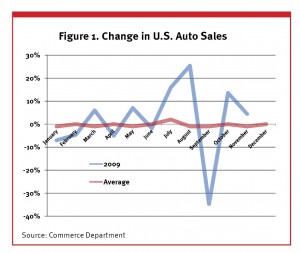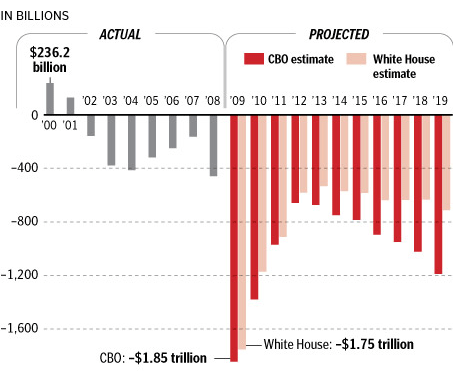I've written before that I'm a fan of the FairTax -- it's a flat consumption tax would do a lot to boost tax compliance, boost U.S. exports, and reduce complexity. So, it was with some interest that I read a New York Times article on a new proposal for a consumption tax. It only took me a few seconds to be horrified by what I read.
By replacing federal income taxes with a steeply progressive consumption tax, the United States could erase the federal deficit, stimulate additional savings, pay for valuable public services and reduce overseas borrowing -- all without requiring difficult sacrifices from taxpayers.
First of all, the words "steeply progressive" send chills up and down my spine -- and not chills of excitement. But let's ignore that for a moment. How is it possible to simultaneously erase the deficit, provide brand new services, and eliminate borrowing -- all without requiring difficult sacrifices from taxpayers?
As far as I call, it's not possible.
Under such a tax, people would report not only their income but also their annual savings, as many already do under 401(k) plans and other retirement accounts. A family's annual consumption is simply the difference between its income and its annual savings. That amount, minus a standard deduction -- say, $30,000 for a family of four -- would be the family's taxable consumption. Rates would start low, like 10 percent. A family that earned $50,000 and saved $5,000 would thus have taxable consumption of $15,000. It would pay only $1,500 in tax. Under the current system of federal income taxes, this family would pay about $3,000 a year.
That's great for low-income families. What about high income families?
Consider a family that spends $10 million a year and is deciding whether to add a $2 million wing to its mansion. If the top marginal tax rate on consumption were 100 percent, the project would cost $4 million. The additional tax payment would reduce the federal deficit by $2 million. Alternatively, the family could scale back, building only a $1 million addition. Then it would pay $1 million in additional tax and could deposit $2 million in savings. The federal deficit would fall by $1 million, and the additional savings would stimulate investment, promoting growth. Either way, the nation would come out ahead with no real sacrifice required of the wealthy family, because when all build larger houses, the result is merely to redefine what constitutes acceptable housing. With a consumption tax in place, most neighbors would also scale back the new wings on their mansions.
Uh-huh. That's a mind-blowing definition of "no real sacrifice". Give the rich an "inventive" to build smaller houses and they'll be better off because they won't have to compete with other rich people to build ever bigger houses. Wow.
Let's also look at the idea that expanding a house isn't investment. Expanding a house results in jobs for construction workers, foremen, and architects. It results in orders for more bricks, lumber, plaster, flooring, roofing, insulation, etc. Isn't that beneficial to the economy?
The alternative to spending money how they want is that people save more, whether in banks or investment accounts. That would make credit cheaper for all kinds of borrowers -- mortgage borrowers, automotive borrowers, education borrowers, home improvement borrowers, and businesses of all kinds.
What are people going to do with these cheap new loans? Buy things, I suppose. In the end, isn't consumption just another form of investment?
Let me clear: I think this particular consumption tax is a horrid idea. Wealth isn't the measure of how much money someone has in their bank account, it's the measure of much useful things they have. What good does $20,000 in the bank do me, if I can't use it to buy a bigger house, a bigger car, a better education, or a holiday in the Wisconsin Dells? It seems that this tax would encourage me to save, then penalize me for enjoying my savings.
Sounds like social engineering dressed up as tax policy -- exactly what I dislike about current state of income taxes.
I vote "No".




